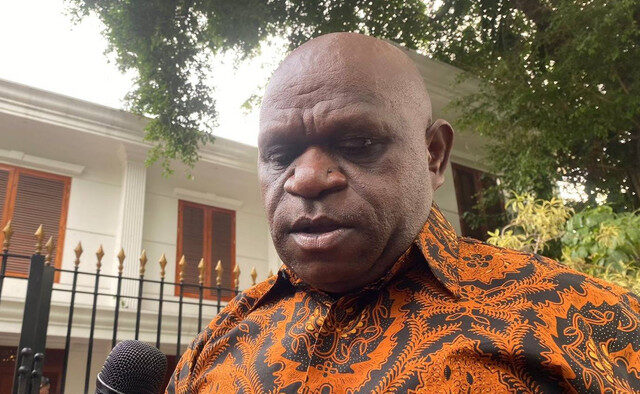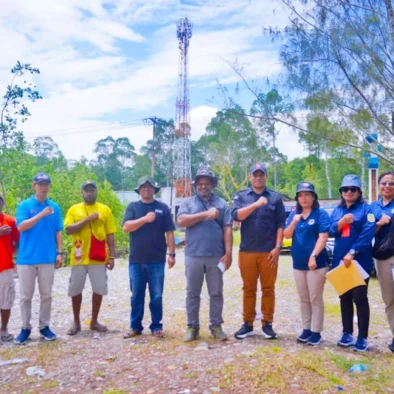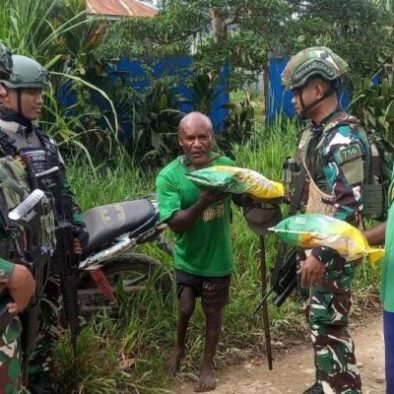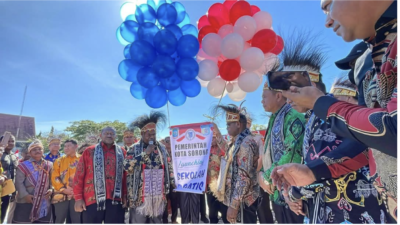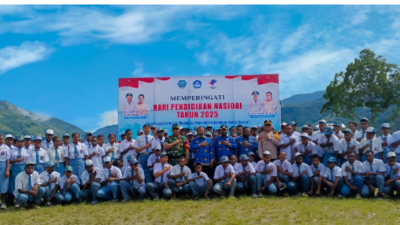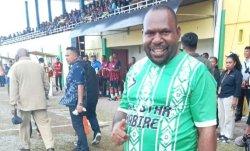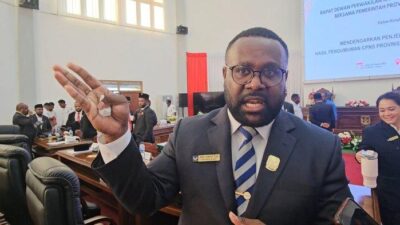Thelandofpapua – On October 14, 2024, Natalius Pigai was among the prominent figures summoned to the residence of Prabowo Subianto in Kertanegara, South Jakarta.
This meeting has sparked speculation about Pigai’s potential role in the forthcoming Prabowo-Gibran cabinet, particularly as a candidate for the position of Minister of Human Rights.
A Reserved Response
When approached for his thoughts on the possibility of becoming the Minister of Human Rights, Pigai maintained a low profile, stating, “I don’t have the authority to speak on that. I don’t have the authority to answer.” His reluctance to comment further on the matter underscores a commitment to the hierarchical structure of his political alignment with Prabowo.
During his interaction at the meeting, Pigai emphasized his long-standing allegiance to Prabowo, describing himself as both a subordinate and a soldier. “You see, maybe I’m the one who has been called the most among many people. For over a dozen years now.
I am directly his subordinate; I’m a soldier who is often called,” he noted. This assertion reflects Pigai’s perspective on leadership and loyalty, prioritizing respect and acknowledgment as a dedicated member of Prabowo’s circle.
Who is Natalius Pigai ?
A seasoned human rights activist, Natalius Pigai is not a stranger to the Indonesian public. Born in 1975 in Paniai, Papua, Pigai’s career is characterized by a deep commitment to advocating for marginalized communities and human rights.
He served as a Commissioner at Indonesia’s National Human Rights Commission (Komnas HAM) and has actively contributed to various NGOs and civil society organizations.
Pigai earned his Bachelor’s degree in Government Studies from the College of Community Development (STPMD) in Yogyakarta in 1999.
His academic journey continued through several non-formal training programs, including statistical education at the University of Indonesia in 2004, researcher training at LIPI in 2005, and leadership courses at the National Institute of Public Administration from 2010 to 2011.
During his time in academia, Pigai was actively engaged in numerous organizations, including the Student Senate and the Indonesian Democratic Party (PRD). His commitment to social issues is evident in his involvement with organizations such as:
- Sejati Foundation: Advocating for the rights of marginalized groups in Papua, Dayak, Sasak, and Aceh (1999-2002).
- Indonesian-Japanese Cultural House (GBI): Serving as research staff from 1998 to 2001.
- Cindelaras Foundation: Focused on promoting local wisdom and farmers’ rights (1998).
Additionally, Pigai played a crucial role in the Renaissance Study Institute as its Chairman from 1997 to 2000, where he promoted the Noken culture of Papua through the WOOKEBADA bulletin. His efforts culminated in the recognition of Noken as a UNESCO World Cultural Heritage in 2002, highlighting his impact on cultural preservation.
Experience and Contributions
Pigai’s extensive experience includes serving as a special advisor to ministers in the Ministry of Manpower and Transmigration from 1999 to 2004. He has also worked as a structural employee and researcher specializing in employment, particularly in internal and international migration. His contributions extend to:
- Assisting BRR Aceh-Nias as the main writer for the Tsunami Encyclopedia in the field of supervision (2008-2009).
- Supporting the Director-General of Regional Autonomy and the Director-General of Political and Internal Affairs at the Ministry of Home Affairs during two separate periods (2006-2008 and 2009-2012).
- Serving as one of the 11 members of the National Human Rights Commission from 2012 to 2017.
Looking Ahead
As the political landscape in Indonesia shifts toward the upcoming 2024-2029 cabinet formation, Natalius Pigai stands out as a significant figure with a robust background in human rights advocacy. His potential appointment as Minister of Human Rights would not only signal a commitment to addressing human rights issues but also reflect the need for experienced leaders who prioritize respect and advocacy for marginalized communities. Whether Pigai will ultimately step into this role remains to be seen, but his journey continues to shape the dialogue around human rights in Indonesia.

